Cost Savings in Steel
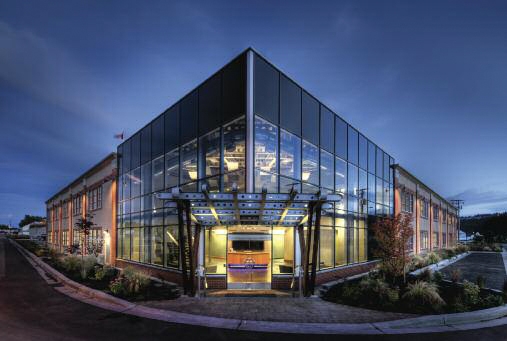
Real Steel Cost Advantages – Consider. Choose. Challenge.
Start at the foundation where the loads imposed by a steel frame are up to 50% less than those of a concrete alternative. There is evidence in the field and through third-party case studies and comparative cost studies that steel building systems offer significant cost benefits over competitive building materials when the total cost of construction is considered.
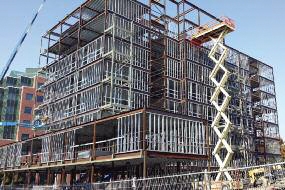
There is evidence in the field and through third-party case studies and comparative cost studies that steel building systems offer significant cost benefits over competitive building materials when the total cost of construction is considered. Building owners, developers, contractors and design professionals are concerned with overall system construction costs from the design phase through the operational phase, and not simply the raw material costs of structural and non-structural systems.
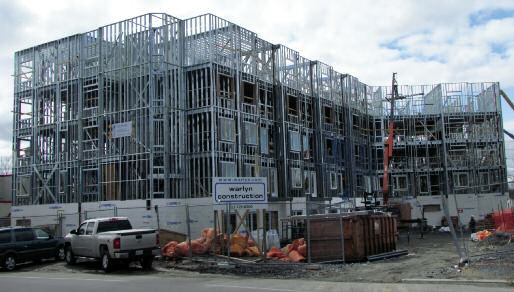
While there are efforts to promote the affordability of a specific building material over others, there is a growing concern that the overall impact of material selection is being ignored or concealed, a result that will be costly for all stakeholders involved. It would be wise for developers, designers, building professionals, owners and other stakeholders to consider the case for steel and its many proven or demonstrated cost advantages such as long-term performance, choose the best material for the building project based on all direct and indirect economic benefits, and challenge the claims of competing materials industries.
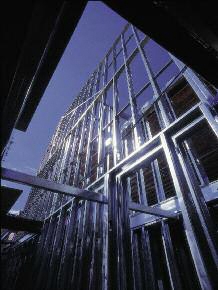
- A recent comprehensive comparative case study[1] on a six-storey office building was conducted by respected third parties in order to evaluate the impact of using steel framing versus cast-in-place (CIP) concrete on a project’s entire construction cycle from concept and design to costing, construction and sustainability. The result was a net cost difference of $81/m2 ($7.50/sq. ft.)[2] in favour of the steel building.
- Cost savings in steel buildings start at the foundations, where the loads imposed by a steel frame are up to 50% less than those of a concrete alternative[2].
- Time-related savings can easily amount to between 3% and 5% of the overall project value[3], reducing the building owner’s requirements for working capital and improving cash flow.
- Builders risk insurance on a four-storey, 400-unit hotel, built over 24 months, cost $360,000 for steel framing, compared with the $1.6 million it would have cost for a policy if the project had been built with wood – a saving of $1.3 million[4].
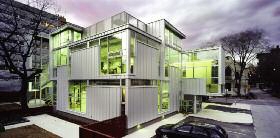
[1]CISC Comparative Case Study: Steel vs Concrete Framing Systems
[2]SteelConstruction.info The free encyclopedia for UK steel construction information, https://www.steelconstruction.info/The_case_for_steel
[3]SteelConstruction.info The free encyclopedia for UK steel construction information, https://www.steelconstruction.info/The_case_for_steel
[4]SFIA, “Insurance Savings with Cold-Formed Steel
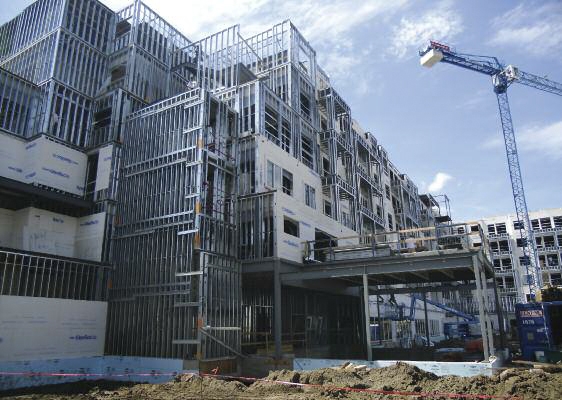
“We supplied all the cold formed steel and connectors. We had 95% pre-cut to size to save labour and site debris. The steel’s precision and straightness allowed the use of pre-engineered panels. We estimate close to a $10.00 per 0.093m2 ($10.00 per sq. ft.) savings over a concrete structure”. - Gerry Morin, Morin Bros. Building Supplies Inc.